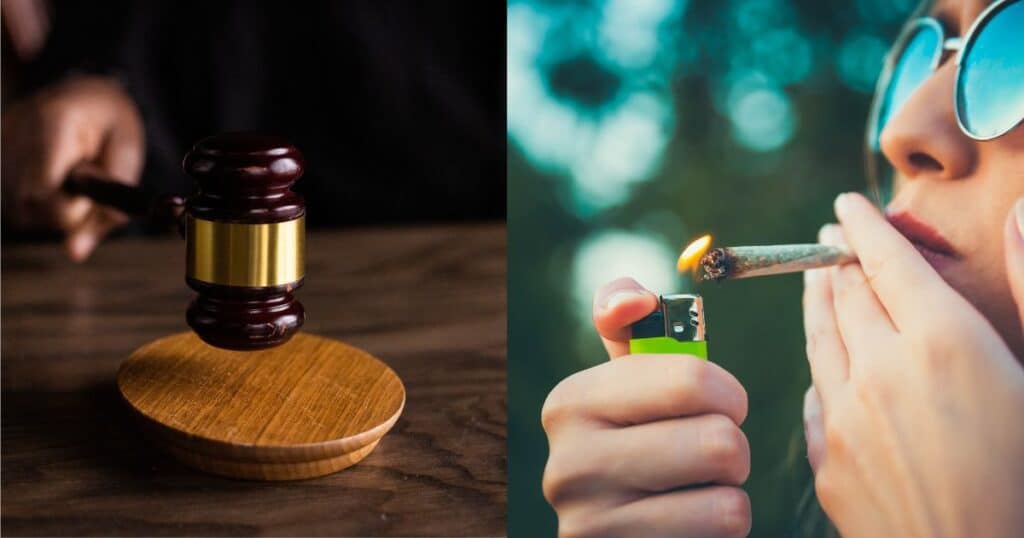In a ruling yesterday that has significant implications for cannabis users and law enforcement in Illinois, the state’s Supreme Court has declared that the odor of burnt cannabis alone is no longer sufficient to justify a police search of a vehicle. This decision represents a considerable shift in how cannabis-related traffic stops are handled and reflects the evolving legal landscape surrounding cannabis use and possession.
History of Medical and Recreational Cannabis in Illinois
The journey of cannabis legalization in Illinois began with the approval of medical marijuana. In 2013, the Compassionate Use of Medical Cannabis Program Act was enacted, allowing patients with qualifying medical conditions to use cannabis as part of their treatment. This program laid the groundwork for broader cannabis acceptance in the state.
Following the successful implementation of medical cannabis, Illinois took a pioneering step toward legalizing recreational use. In 2020, Illinois became the first state to establish a recreational cannabis market through the state legislature rather than a voter initiative.
Illinois Supreme Court Ruling
The ruling stems from a 2020 traffic stop involving Ryan Redmond, who Illinois State Trooper Hayden Combs pulled over for minor infractions. During the stop, Combs detected a strong odor of burnt cannabis emanating from Redmond’s vehicle.
This prompted a search, which led to the discovery of one gram of cannabis in the center console. Despite Redmond not exhibiting any signs of impairment or having cannabis on his person, he was charged with unlawful possession of cannabis.
In a unanimous 6-0 decision, the Illinois Supreme Court ruled that the smell of burnt cannabis alone does not provide probable cause for a warrantless search of a vehicle. Justice Scott Neville, Jr. emphasized that the recent changes in cannabis laws necessitate reassessing what constitutes probable cause.
“We hold that the odor of burnt cannabis, alone, is insufficient to provide probable cause for police officers to perform a warrantless search of a vehicle. We also hold that the totality of the facts and circumstances known to Officer Combs did not provide probable cause to search Redmond’s vehicle. Therefore, the circuit court correctly granted the motion suppressing the evidence confiscated from Redmond.” the opinion states.
The court compared the regulation of cannabis to that of alcohol, where possession is generally lawful but remains unlawful under certain circumstances. The ruling signifies a shift towards treating cannabis more like alcohol in terms of legal scrutiny.
This means that while possession and use of cannabis have become more permissible under Illinois law, certain restrictions still apply, especially when it comes to driving. The decision also highlights the importance of context and additional suspicious circumstances in determining probable cause for searches.
Implications for Cannabis Users and Law Enforcement in Illinois
For cannabis users in Illinois, this ruling provides greater clarity and protection. It reinforces the idea that individuals can legally possess and consume cannabis without fear of arbitrary vehicle searches due to its smell. However, it is crucial to remember that smoking cannabis in a vehicle or driving under the influence remains illegal under law in Illinois.
Cannabis users should be aware of their rights during traffic stops. While the smell of burnt cannabis alone cannot justify a search, other factors might, such as showing signs of impaired driving.
Law enforcement agencies in Illinois must adapt their procedures in light of this ruling. Officers can no longer rely solely on the smell of burnt cannabis as probable cause for searches. This necessitates additional training and revised guidelines to ensure that searches are conducted lawfully and respect individuals’ rights.
Police officers must now consider a broader range of factors when determining probable cause. This includes observing signs of impairment, the presence of cannabis in plain view, and other behaviors. The ruling encourages a more common sense and evidence-based approach to law enforcement of cannabis.
The Illinois Supreme Court’s decision aligns with similar rulings in other states, such as Kansas, Massachusetts, Minnesota, and Pennsylvania. These precedents collectively contribute to a growing body of case law that emphasizes the need for concrete evidence beyond just the smell of cannabis to justify searches. This trend will likely influence future legal interpretations and legislative changes nationwide.
By declaring that the smell of burnt cannabis alone cannot justify a vehicle search, the court has set a new standard that balances individual rights with public safety. This decision not only protects cannabis users from unwarranted searches but also encourages law enforcement to adopt more nuanced and evidence-based practices.






















